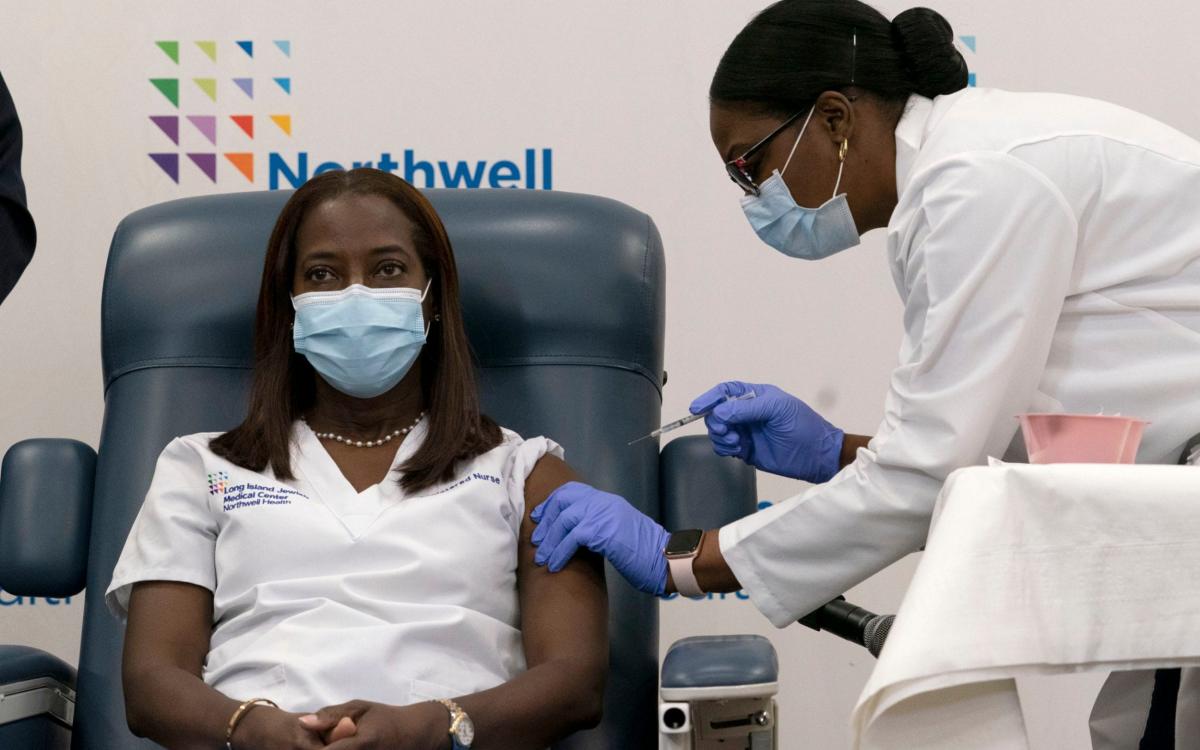There are no products in your shopping cart.
| 0 Items | £0.00 |


NIGERIAN health officials have identified six more cases of the dreaded UK variant of the Covid-19 virus in the country known as B117 after scientists collected fresh samples from Osun and Kwara states.
Over the last few months, virus has mutated into several new strains and these are now ravaging the globe in a deadly second wave of the pandemic. According to the Nigeria Centre for Disease Control (NCDC), scientists from the Africa Centre of Excellence for Genomics of Infectious Diseases (Acegid), at the Redeemers University in Ede, Osun State, have now found the UK strain in the country.
NCDC director-general Dr Chikwe Iheakwazu, said: “On the 30th of January, our partners at Acegid detected the B117 variant in six additional samples, five from Osun and one from Kwara State. This is the variant of concern that first emerged in the UK.
“The five in Osun are most likely related to the fact that this is where Acegid is and where they get a lot of samples from. In total, we have detected the B117 variant in seven cases within Nigeria.”
Dr Iheakwazu added that the development implies community transmission of this variant of concern, hence the need to scale up on genomic surveillance. He, however, said it is unclear if the new variants are leading to increased transmission recorded in some countries.
“Specifically, we have begun sequencing positive samples among travellers from the UK and South Africa, who test positive on the seventh day of testing. We are developing a protocol to sequence more samples from across states at Acegid and our sister-agency the Nigerian Institute of Medical Research (NIMR).
"This is in addition to our capacity at the NCDC National Reference Laboratory. We are all aware that with increasing transmission, the virus is adapting to the human population leading to what is known as variants of concern,” Dr Iheakwazu said.
He explained that an additional layer of response required to understand the variants of concern is with genetic sequencing and genomic surveillance. In the UK, the BBC quoted top British health officials as saying there was no evidence the new variant was more deadly or would react differently to vaccines but it was proving to be up to 70% more transmissible.
This new variant detected in the UK in September has triggered the current exponential spike in the number of Covid-19 cases in Britain, leading to a travel ban by some countries and a local stay at home order. So far, the UK has recorded almost 4m cases of Covid-19, with over 100,000 deaths.
Over 45 countries have so far identified the UK variant, with experts warning that more nations could report sharp increases in cases in the coming weeks. Amid high concerns of the rapid spread of the new variant, some countries are taking proactive measures to prevent importation of new cases of the virus, with the Nigerian government announcing new travel rules for passengers coming in from the United Kingdom and South Africa.
Sani Aliyu, the national coordinator of Nigeria's Presidential Task Force on Covid-19, said: “Effective from Monday, December 28th, all passengers coming into the country from the UK and South Africa on direct flights, must use the Nigerian International Travel Portal to register, fill in the health questionnaire. They must also upload a negative Covid-19 PCR result with a validity of not more than five days and must pay for a test at day seven of arrival in country without which they will not be allowed to board the flights.”
He noted that a special register would be opened at the airports for passengers from these two countries specifically to track and ensure they present themselves for testing on day seven of their arrival. Mr Aliyu noted that Nigeria’s system for travels in terms of ensuring the safety of citizens and preventing the importation of cases is one of the most strict.